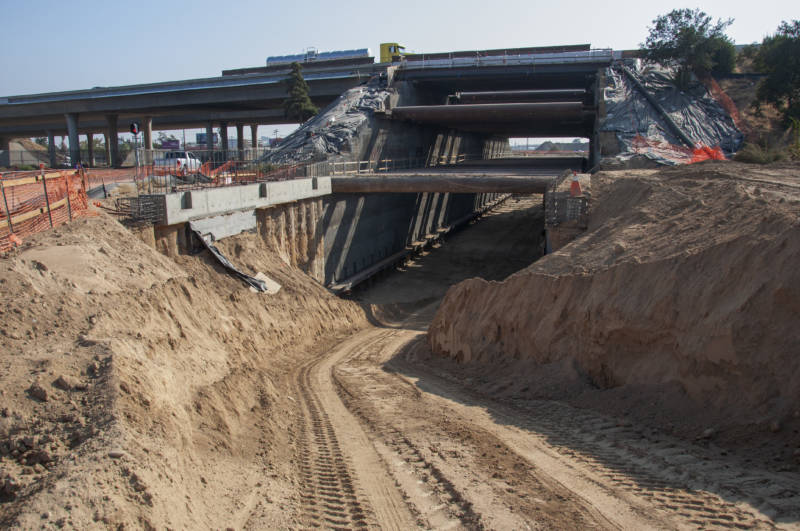The situation leaves veteran transportation officials and analysts shaking their heads at a move they say is virtually without precedent.
"I’ve never heard of a case where it escalates to this level," Randy Rentschler, the Metropolitan Transportation Commission's director of legislation and public affairs, said Wednesday. "Usually these things are worked out quietly, not on the front pages of the papers. I can think of nothing remotely close to this. It’s unprecedented."
Art Bauer, a former senior staffer with the state Senate Transportation Committee who was involved in crafting the language for the state's 2008 high-speed rail ballot measure, said he was "unfamiliar with any precedent" for such a funding withdrawal.
"Certainly, in my 25 or 30 years of being involved in transportation policy development in the state, I'm unfamiliar with the idea of canceling a grant," Bauer said.
Bauer said that the state could have a problem hanging onto the $929 million grant because it hadn't yet filed for reimbursement of some work already done on the rail project.
"The way the grants work is you do a piece of work, then you file a claim with the Department of Transportation for reimbursement, and the grant money flows to you at that point," Bauer said. "Evidently, the state has not done that. So I guess if you're sitting in Washington and you're looking at this $930 million or whatever it is, and you say, 'Well, no one's used this money,' ... and you may feel, 'We can withdraw the money, we can withdraw their ability to claim the money.' "
Bauer predicted it will take months, at least, to unravel what happens to the funds.
The federal rail agency's letter alleged that the High-Speed Rail Authority has failed to meet certain funding and accounting requirements for work on the bullet train project.
The letter also said a review of the authority's documents led federal officials to conclude that the rail authority "has failed to make reasonable progress" on the project's initial segment in the San Joaquin Valley -- leading the federal agency to declare the work cannot be completed by the December 2022 deadline set by grant agreements.
State Sen. Scott Wiener, D-San Francisco, a strong proponent of public transportation in general, said the Trump administration's criticism of the high-speed rail project is disingenuous at best.
"It's Donald Trump's allies in the Central Valley who have done everything in their power to slow down the land acquisition and the other logistical steps to build the project," Wiener said. "So this project has been so politicized by Trump's own colleagues in the Republican Party who are opposing the project that it's hard for him to say, 'Well you didn't do it quickly enough.' "
While Newsom may have put the high-speed rail project in the crosshairs by taunting Trump in his State of the State speech last week, Wiener wouldn't criticize the Democratic governor.
"The governor said what he said and I believe what he was expressing was ... let's just finish the backbone of the system in the Central Valley. We're already constructing it. It's funded. Let's get it done and then we will move north and south from there."
James Moore, a USC professor of engineering and public policy and director of the university's transportation engineering program, said the matter could well wind up in court.
Moore said the issues itemized in Batory's letter "appear to me to be ... technicalities that normally would not stop a project. But much depends on the exact language in the full-funding agreements, and much depends on the posture the federal government wants to take. These are in fact agreements, they're contracts. There is an obligation to perform."
"The question then becomes, 'What is substantive non-performance?' " Moore said. "That's typically where judges get involved."
Moore also pointed to a 2010 case in which the Department of Transportation demanded repayment of grants awarded to a major transportation project.
